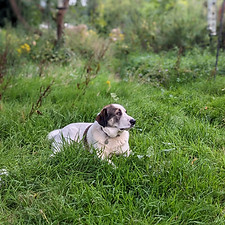
Some examples of our work
The services we provide
For examples of our work please go to the relevant page
Click the text to go to the relevant page
The manufacturers we install


Our approvals relevant to heat pumps




Who We Are
Artimus Renewables, based near Lincoln, is a family-operated business focused on renewable energy installations. We specialize in heat pumps, solar PV, wind turbines, and EV charging solutions while ensuring ethical operations and meeting client expectations. Our dedication to quality installations helps create a sustainable future.
Why choose Artimus?
Take a look at our Google reviews on our Reviews page and you’ll get a good idea of how happy our customers are.
We always ensure that the installation will perform as described and that you will have a solution that meets an agreed design. The solution might not be exactly what you initially thought you wanted – that's because we won't install a poor solution just to make you happy or line our pockets. We will install the right solution for your property and your budget.
We also only fit equipment that has reliable technical support and warranty cover. This means we might not be the cheapest quote you receive but you will definitely get long-term value for money with us.
Meet the team

Steve
Bossman, when he is allowed
.jpg)
Matt
Engineer, Fran and Steve's youngest of three children

Gren
Engineer, good friend of many years

Fran
Accounts, admin, on-site catering and keeping bossman in check

Ringo
Site security

Spong
Ringo's manager
Some heat pump questions answered
How do heat pumps work?
A heat pump uses a refrigerant to extract heat from one place and source and then transfers that heat to another place and medium. For example, taking heat from the air and transferring it to water for a heating system; an air to water system. In the process of transferring the heat the temperature is raised to a usable level where it can heat the water in a hot water tank and the radiators for heating.
Do heat pumps work as well as conventional boilers?
Absolutely, in fact they work better than boilers, as long as the system is correctly designed and installed, including making sure the radiators and pipework are appropriate. When we visit you to assess the suitability for a heat pump and put together our quote, we check all aspects of your property, insulation and existing heating system in order to recommend the best solution for your home or business premises.
Are heat pumps suitable for older properties?
Heat pumps work well in older houses, if the system is designed and installed correctly. The amount heat needed to heat the house remains the same regardless of how the heat is delivered. The key to succeeding with an older property is to deliver the correct amount to heat to each room.
Are air source heat pumps noisy?
No. Older heat pumps do have a reputation for being noisy, but manufacturers have made considerable improvements in recent years to reduce the noise impact of their products. For example, the Samsung 5kW R290 integrated heat pump has a sound pressure level of 55dB(A) at the heat pump; at three meters the noise level is the equivalent of a quite whisper. The Samsung 16kW unit has a sound pressure level of 65dB(A) at the unit and at three metres this is the equivalent of whispered conversation at 2 m. So you will be able to hear the unit close-up but at 3m the impact is minimal.
How do you measure the performance of heat pumps and the effect on cost?
For most people, performance will equate to how much does it cost to run. The key measures of performance are the “Coefficient of Performance" (CoP) and the “Seasonal Coefficient of Performance” (SCoP). The CoP is the instantaneous measurement of output for one kW of input. For example, if a unit has 1 kW of going in but provides 3.5kW of heat out it’s Cop is 3.5. The SCoP is the CoP averaged out over a typical year and operating conditions and so is of more use when determining the running cost of a heat pump. The SCoP is affected by many factors but the one we have most control over is the output flow temperature of the heat pump. For example, A Vaillant 12kW R290 monblock has a SCoP of 4.88 at a flow temp of 35 degrees C and a SCoP of 3.63 at a flow temp of 55 degrees C. What this means is the heat pump uses around 34% less electricity at the lower flow temperature.
Is replacing a conventional boiler with a heat pump cost effective?
Yes. There is currently a £7,500 grant available with the Boiler Upgrade Scheme, making the installation cost very affordable. Installation costs start at around £1,500 with the Boiler Upgrade Scheme. A typical installation generally costs between £1,500 and 4,000.
What is the Boiler Upgrade Scheme (BUS)?
The Boiler Upgrade Scheme (BUS) provides homeowners, landlords and small business owners with a £7,500 grant towards the installation of a heat pump to replace an existing heating system using fossil fuels - subject to qualifying criteria.
The Boiler Upgrade Scheme (BUS) questions, answers, key points and overview of the process
-
The government will give you £7,500, in most cases, to replace gas, oil, electric, coal and wood powered heating systems.
-
Yes, £7,500 towards the cost which means you may be able to replace your boiler for less than the cost of installing a replacement oil or gas boiler.
-
And, if designed and installed correctly, will cost less to run than the equivalent gas system.
What you need to do:
-
Own the property or have consent from the property owner
-
Be heating with gas, oil, direct electric, wood coal.
-
Have a current Energy Performance Certificate, we can help with this
-
Have not previously had a government grant for that property for a heat pump
-
Not be social housing
-
Have a hot water tank or a location where one can be installed
What we do:
-
Carry out a no obligation quick survey to check suitability
-
Provide a rough cost to you so you can decide
Once you have in principle agreed to proceed, we:
-
Carry out a detailed survey to determine the heat loss by room and for the whole property
-
Design a suitable system
-
Provide a detailed quote
Once you have formally agreed to proceed, we:
-
Apply for the grant and once approved, agree a date with you for the installation.
Keys points for the heating design:
-
You need to have a hot water tank or somewhere where one can be fitted; a heat pump is not designed to provide hot water on demand such as a combi boiler.
-
The radiators may need to be sized up. This enables the heat pump to be set to run at a lower temperature which results in it using less electricity to heat the property. It saves money. By sizing up we try to keep the height and width the same but fit a triple bank radiator. However, we may need to increase the overall size.
-
Somewhere to put the heat pump. It needs a good air flow and is connected to the tank with 28mm pipes.
-
The heating pipework will generally be suitable to use with the heat pump but there are some exceptions. The main feed and return pipes need to be 22mm or larger but microbore to the radiators is generally okay.
So why not get in touch at:
enquiries@artimus-limited.co.uk
Or go to the Government website:
https://www.gov.uk/apply-boiler-upgrade-scheme/check-if-youre-eligible
Our posts
Instagram posts









































































